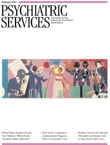Prescriptions for the Mind: A Critical View of Contemporary Psychiatry
There is a common parlor game in which the participants list what famous person they would like to have dinner with and why. A variant might be "What psychiatrist would you want to share a meal with and why?" No doubt we would all have our own answers—that's the fun of the game. I certainly would have mine. But my list has recently grown by one. Joel Paris, M.D., professor of psychiatry at McGill University, has made an impression on me with his recent book Prescriptions for the Mind.
What I look for in a dinner partner is someone with broad-ranging conversational capacity combined with a unique personal perspective. These characteristics are exactly what Dr. Paris displays in his writing. I think of the book as "My Dinner With Dr. Paris." I found myself wanting to talk back—to ask questions, assert my own observations, and concur or disagree. It got me stirred up and thinking.
Of course, in many ways his critique is often a lament. There is much about contemporary psychiatry to be worried about, and Dr. Paris is worried. Issues in diagnosis, matters of treatment, and how we work and are trained are all courageously addressed.
Dr. Paris doesn't steer away from controversy; he attacks the faddism in our diagnostic categories and the corrupting influence of the pharmaceutical industry. He clearly declares that the profession has overemphasized medications and downplayed psychotherapy. As an American who has adopted Canada, he is unsparing in his critiques of psychiatry—for good and for bad—on both sides of the border.
I doubt that anyone will agree with all of his perspectives—I certainly did not—but I am sure that they will be respected as an honest effort to help the profession examine itself. This is the most critical aspect of the book. In a profession where, in true reductionist fashion, we seem to know more and more about less and less, it is rare to have someone try to see the entire forest. This is the task Dr. Paris has taken on. It is a service to the profession and to those who are trying to understand the profession and its work. I hope that many psychiatrists and people who care about psychiatry read this book and talk about it and about the big picture before us.
As for me, if I ever get a chance to actually share a meal with Dr. Paris, I am going to applaud his focus on "shared care" with primary care physicians, ask him why he didn't focus more on the concept of recovery, and argue that he has underemphasized the need of the profession to engage in public health advocacy—all while we feast on our dreams of the future of psychiatry.
The reviewer reports no competing interests.



